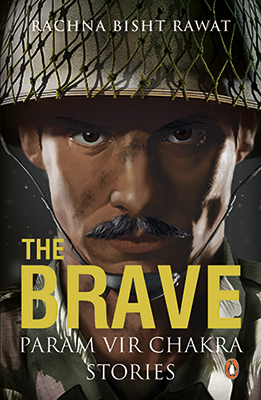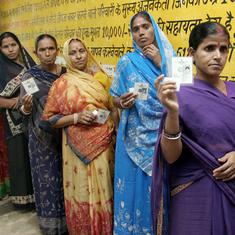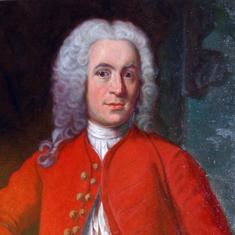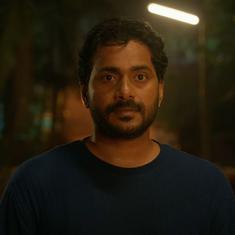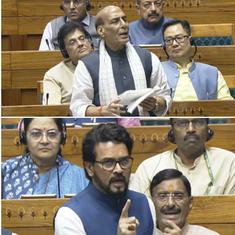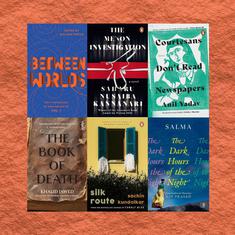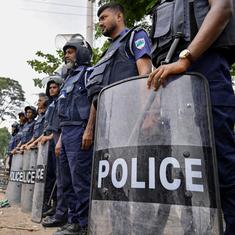2-3 July 1999
Manoj Pandey sat crouched in a trench, almost blending in with the rugged brown slope. He was watching a burst of Bofors fire light up the purple sky. The unruly stubble on his chin made his face itch. He could smell the nauseating sweat in his hair even from under his helmet with a rip in the lining where the hard metal pressed against his scalp – cold yet strangely reassuring. Under the grime smearing his face, his features were good – a well-defined straight nose, firm mouth, broad forehead creased in concentration. He didn’t wear a moustache. His chin was determined, his eyes warm, brown and finely lashed, though at that moment they were bloodshot from serious lack of sleep. He sat motionless, staring stonily ahead, his rough, weather-beaten hands clasped firmly around his Insas rifle.
A khukri (a traditional Nepali dagger) hung from his belt and rubbed against his thigh, the evil glint of its cunning blade sheathed in soft velvet. At the regimental centre in Lucknow, where he was trained to be a Gorkha Rifles soldier, he had been told it was the best weapon to use in close combat, small and deadly, instilling instant terror in the enemy. He had been trained to slice a man’s neck off, cutting swiftly across the skin – right to left, left to right, ripping through veins and sinewy muscles in one powerful move. At the regiment’s Dussehra celebration when he had just joined his unit two years ago, he had been asked to prove his mettle by cutting off the head of the sacrificial goat after the puja. For a moment his mind had wavered but then his arms had lifted in the air, bringing the glittering blade of the sharp dagger down on the scared, bleating animal’s neck, severing it from its twitching body in one massive blow that sprayed his nervous, perspiring face with warm blood. Later, in his room, he had trembled at the act and washed his hands half a dozen times to take away the guilt of his first deliberate kill. He had always been a vegetarian and a teetotaller.
In the past two months, Manoj had come a long way from his natural humane reluctance to take lives. He had contrived attacks, planned kills and used stealth to surprise enemy soldiers as they sat on craggy peaks. He had climbed up freezing mountains, trudging through snow and sleet, even without winter clothing in the initial days. He would use woollen socks as gloves to shield his freezing fingers, peeling them off when they got soaked in a sudden shower, twisting them to squeeze the water out and slipping them on again. He had fixed targets within the sight of his rifle, taken aim and pressed the trigger; tracing the bullet’s path with his eyes as it zipped through the distance and embedded itself in human flesh. He had killed in cold blood, shooting men through their heads, through their hearts, dispassionately watching them bleed to death.
His expertise with the khukri as a weapon of execution had, however, not been tested yet. His instinct told him that tonight could be the night.
***
Manoj Pandey shifted his weight and winced. The edges of his briefs were cutting into his groin. Every time he moved, the rough fabric would slice through the raw skin, digging a micro-inch deeper. He had been wearing the same clothes for almost a week.
Running a hand across his soiled combats, he felt the murky stiffness of sweat and grime. His fingers hovered over the rips and tears where the fabric had been ragged threadbare by crawling on razor-sharp rocks. But there was consolation in company. Cocking his head slightly, he silently observed the dark outlines of his men – short, stocky Gorkhas, grouped unevenly around him in the darkness – dirty, starving and battle-fatigued, yet brave. He made no sign, his eyes remained dark and languid, no emotion flitted across his face, but for them he felt deep warmth in his heart.
Excerpted with permission from The Brave: ParamVir Chakra Stories by Rachna Bisht Rawat and published by Penguin Books India.
